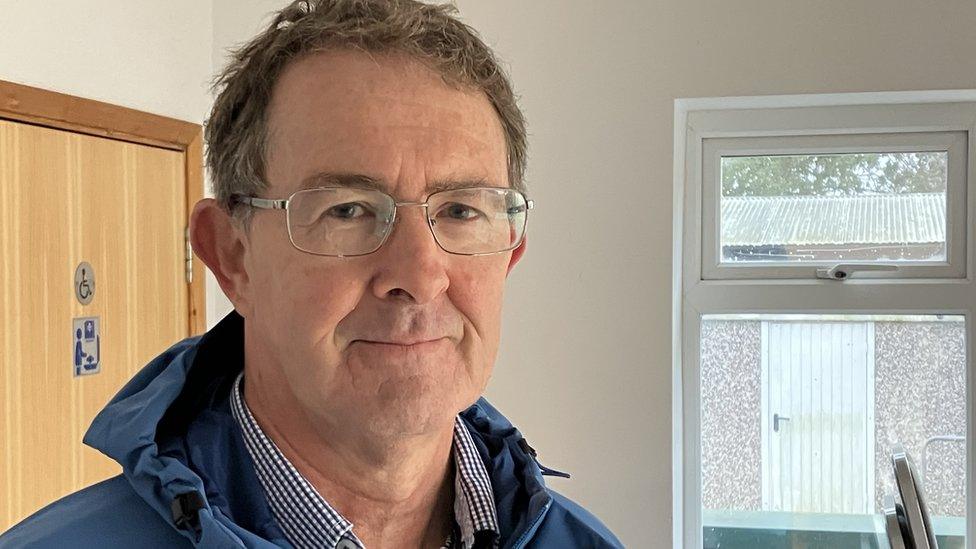Protesters call on council to object to power-transportation proposals
- Published
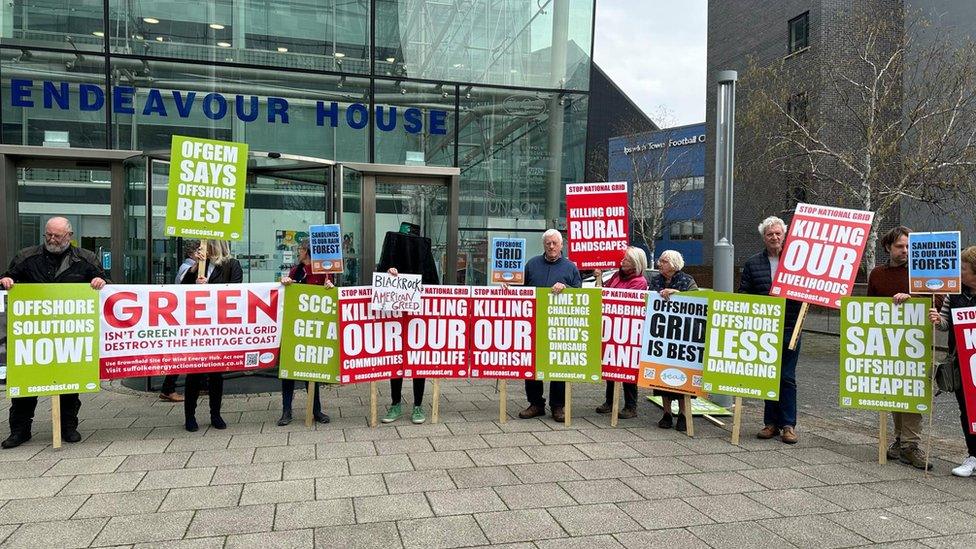
A number of energy projects are planned close to the Suffolk coast, with the proposals angering protesters
Campaigners have said they want a council to push back against energy-infrastructure plans for Suffolk.
Offshore wind, nuclear and solar-power projects are all planned for the county, with transportation of that new power an issue.
The proposals include the installation of offshore cables, pylons and large industrial sites.
Suffolk County Council said it had objected to plans it disagreed with and had given feedback to improve others.
Protesters gathered out the council's headquarters in Ipswich on Thursday, with calls for an offshore grid to be built to minimise the impact on the coastline.
A report published in March said "critical trade-offs will need to be made" to decide how best to carry power from East Anglia's offshore wind farms.
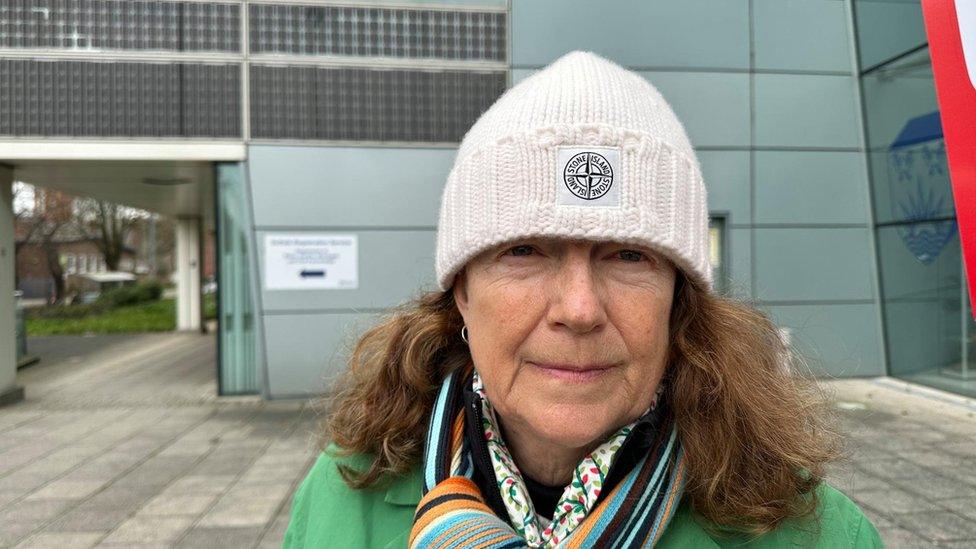
Fiona Gilmore was among the protesters in Ipswich
Fiona Gilmore, of campaign group Suffolk Energy Action Solutions, said the council "seemed to be sitting on the fence" over whether some of the infrastructure should be built.
"We don't believe they fully comprehend the adverse impact of these programmes," she said.
Energy connections from the Netherlands and Kent would see cables come onshore in Suffolk, with a converter station built near Saxmundham.
Planning permission has been granted in the nearby village of Friston for a large substation.
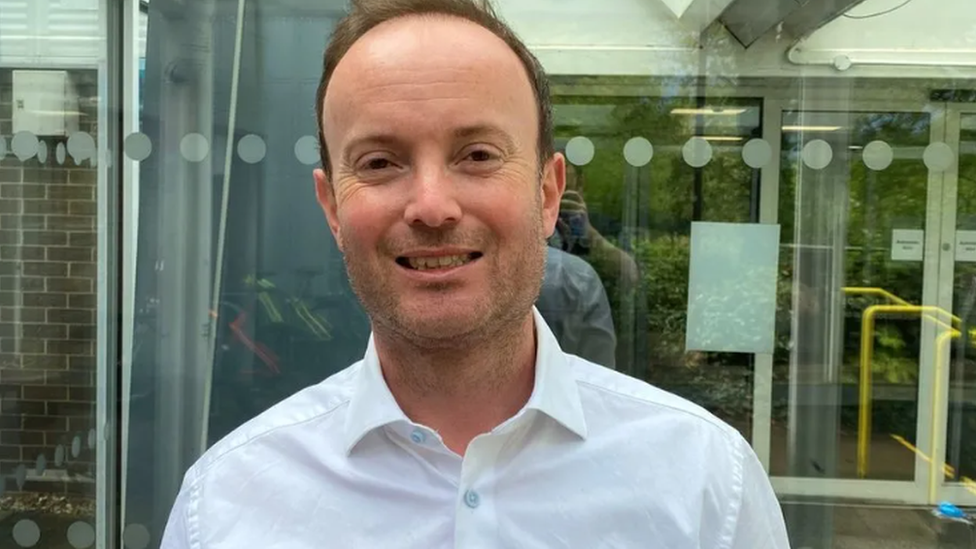
Richard Rout said Suffolk County Council had "improved" the Sizewell C project
Richard Rout, the council's cabinet member for the environment, said: "Our approach is working. It's improving projects where they go ahead.
"We've objected to schemes in the past but we are now seeing tangible policy changes from National Grid and from government."
The council does not making planning decisions on projects that are considered "nationally significant" but does respond to consultations.
"Developers listen, the Planning Inspectorate listens, and government tends to listen to our concerns as well," Mr Rout said.
National Grid said the electricity network in East Anglia "doesn't have the capability needed to reliably and securely transport all the energy that will be connected by 2030".

Follow East of England news on Facebook, external, Instagram, external and X, external. Got a story? Email eastofenglandnews@bbc.co.uk, external or WhatsApp 0800 169 1830
- Published13 March 2024
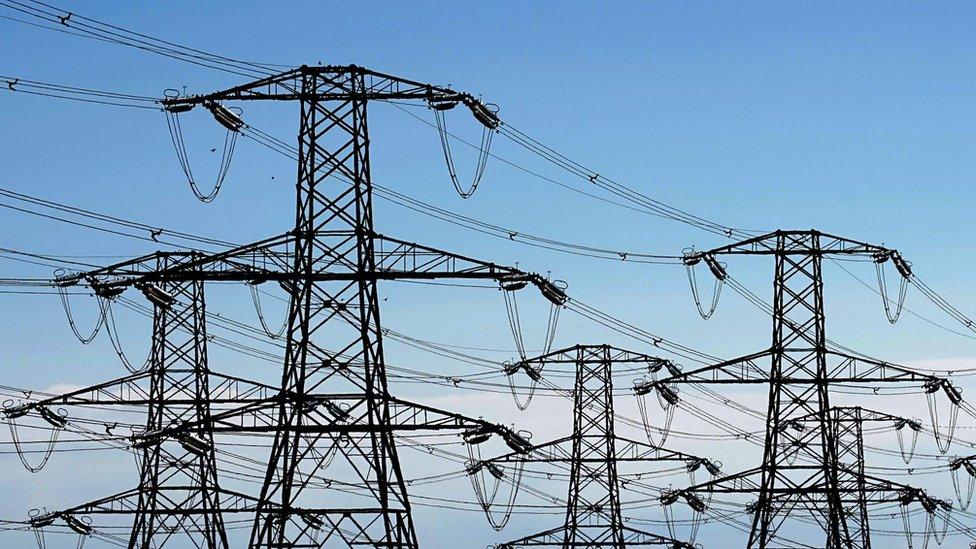
- Published12 March 2024
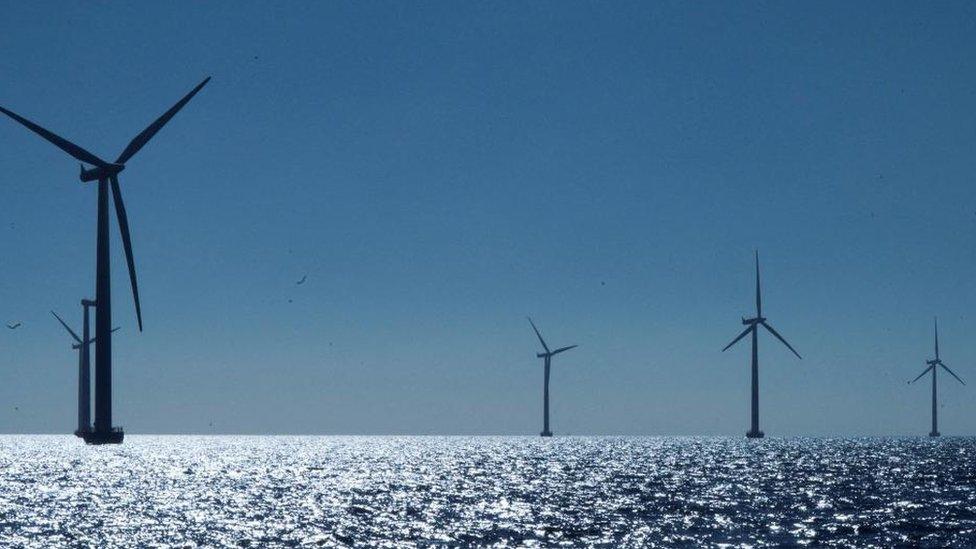
- Published19 December 2023
